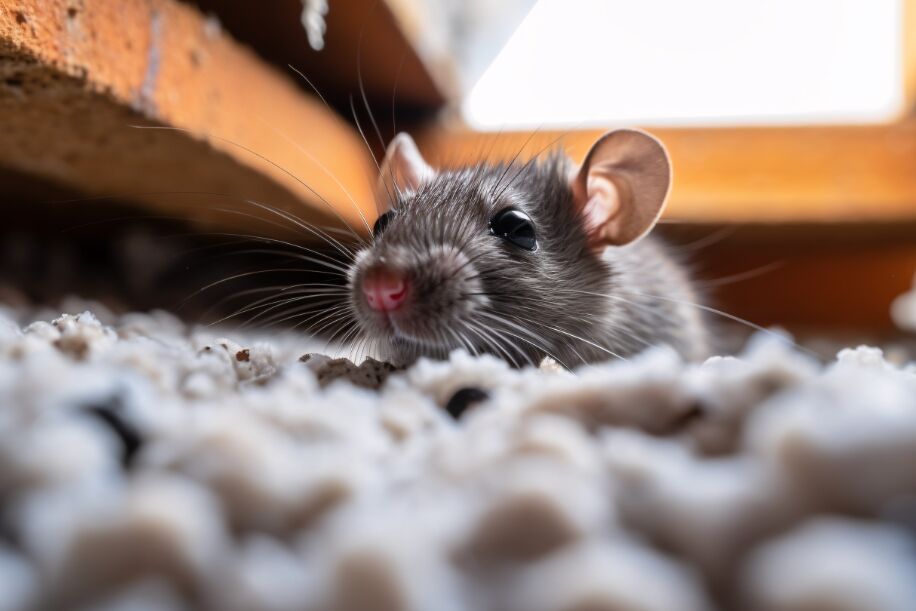Are you tired of seeing your precious vegetable garden being ravaged by pesky rodents? Ensuring effective rodent control for vegetable gardens is crucial to protect your hard work and enjoy a bountiful harvest. These furry intruders can cause significant damage, and it's vital to implement strategies that keep them at bay.
In this article, we will delve into the world of rodent control, exploring various methods and techniques to safeguard your garden. You will learn how to identify rodent activity, understand their behavior, and discover effective ways to prevent them from wreaking havoc on your vegetable patch.

Understanding Rodent Behavior
Before tackling the problem, it's essential to understand what attracts rodents to your garden. Rodents such as rats and mice are naturally drawn to vegetable gardens due to the abundance of food and shelter. They are particularly fond of seeds, fruits, and young plants, making your garden an irresistible buffet.
Rodents are nocturnal creatures, primarily active during the night. They have an acute sense of smell and can detect food from a considerable distance. Knowing these behavioral patterns can help you implement effective rodent control strategies.
Signs of Rodent Infestation
Detecting the presence of rodents early is key to preventing significant damage. Here are some common signs to look out for:
Gnaw Marks and Tracks
Rodents have a constant need to gnaw to keep their teeth from growing too long. Look for gnaw marks on plant stems, vegetables, and wooden structures. Additionally, you may notice small tracks or pathways in the soil where rodents frequently travel.
Droppings
Rodent droppings are a telltale sign of their presence. These are typically small, dark pellets found near food sources. If you spot droppings in your garden, it's time to take action.
Effective Rodent Control Methods
Now that we understand rodent behavior and signs of infestation, let's explore some effective rodent control methods to protect your vegetable garden.
1. Natural Repellents
Natural repellents can be an eco-friendly way to deter rodents from your garden. Consider using strong-smelling herbs such as mint, garlic, or lavender. Planting these around your garden can help mask the scent of your vegetables and keep rodents at bay. To learn more about natural repellents, check out this comprehensive guide.
2. Physical Barriers
Installing physical barriers is another effective strategy. Consider using hardware cloth or wire mesh around your garden beds to prevent rodents from accessing your plants. Make sure the mesh is buried a few inches into the ground to deter burrowing.
3. Traps and Baits
Traps and baits can be used to control rodent populations. Place traps strategically around your garden, especially near areas with high rodent activity. Ensure you use baits that are safe for your plants and pets.
For more detailed strategies on rodent prevention, visit this informative article.
Maintaining a Rodent-Free Garden
Once you've implemented these rodent control strategies, it's essential to maintain a rodent-free environment. Regularly inspect your garden for signs of rodent activity and take immediate action if needed. Keeping your garden clean and tidy will also reduce the likelihood of attracting rodents.
Consider rotating your crops and practicing companion planting to confuse and deter rodents. Additionally, removing any potential food sources, such as fallen fruits or seeds, will make your garden less appealing to these unwanted visitors.

Faq Section
How can I naturally repel rodents from my vegetable garden?
Using natural repellents such as mint, garlic, and lavender can help deter rodents. These strong-smelling herbs mask the scent of your vegetables, making them less attractive to rodents.
What are some signs of rodent infestation in a garden?
Common signs include gnaw marks on plants, small tracks in the soil, and rodent droppings near food sources. If you notice any of these signs, it's essential to take action quickly.
Are traps effective in controlling rodents in gardens?
Yes, traps can be effective when placed strategically around areas with high rodent activity. Ensure you use baits that are safe for your plants and pets.
By implementing these strategies and staying vigilant, you can enjoy a healthy and bountiful vegetable garden free from the clutches of pesky rodents.
